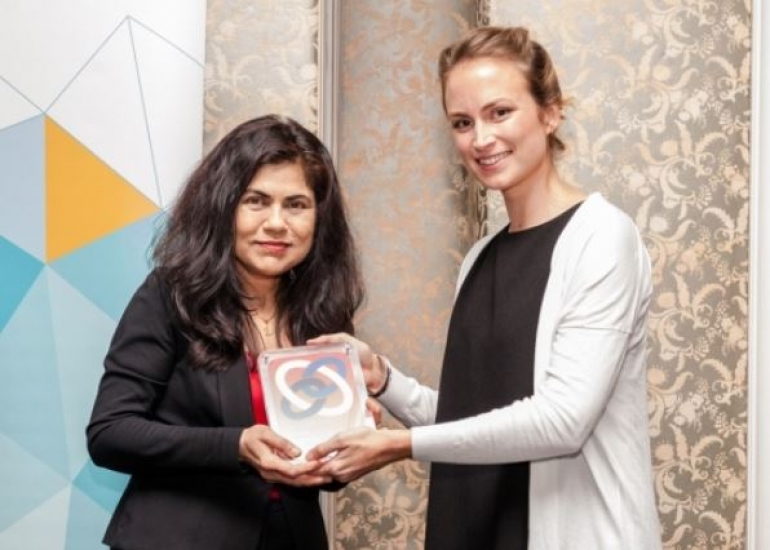Latest news
Read the latest news from the Centre for Sustainable Materials Research and Technology

The SMaRT Centre has won a prestigious award for its ground-breaking recycling research in collaboration with industry partners.
The 2019 BHERT (Business Higher Education Round Table) Award for ‘Outstanding Collaboration In Research & Development – Major Partnerships’ recognises excellence in R&D activity undertaken jointly by researchers in tertiary education institutes and partners in business and industry.
BHERT was founded in 1990 and focuses on high-impact projects which make a substantial difference to Australian prosperity, the development of new industries, creation of jobs and improved quality of life in Australia. The awards are assessed by a panel of independent judges against stringent criteria.
The SMaRT Centre, led by founder Professor Veena Sahajwalla, was recognised for the invention of its ‘Green Steel’ technology in collaboration originally with One Steel and then with long-standing Newcastle-based steel maker MolyCop which is taking the technology across its global operations.
In accepting the award on behalf of her UNSW team, Professor Sahajwalla said, “This award is not just recognition for us as researchers, scientists and engineers but for our fantastic industry partner MolyCop with whom we have collaborated over many years. It is acknowledgement of a fantastic Australian company that embraces innovation and investment in R&D in partnership with university, and MolyCop is now a world leader with this technology and its ongoing partnership with us.”
Professor Sahajwalla and her SMaRT team invented Polymer Injection Technology, known as ‘Green Steel’, a process that involves using old rubber tyres as a replacement for coking coal which is a vital ingredient required in steel making as a source of carbon. ‘Green Steel’ has diverted millions of tyres from landfill and has become one of Australia’s most important manufacturing innovations of the last two decades, addressing significant environmental issues at the same time as improving the performance and competitiveness of Australian businesses.
In noting the importance of ‘Green Steel’, BHERT CEO Dr Peter Binks said, “Professor Sahajwalla has established a leadership position for Australia in low emission steelmaking, and in doing so has provided both growth opportunities for Australian steel and helped reduce environmental challenges for the nation. Her innovation and resourcefulness over the last decade have been remarkable. Our Panel was impressed with the partnership with OneSteel to develop and commercialise the technology, and now with MolyCop to make it available in international markets.”
The principles of this thermal-based microrecycling science at the SMaRT Centre has led to other new, world-leading technologies. Professor Veena and her team of scientists, engineers and materials experts have invented MicrofactoryTM processes that can reform waste items like glass, clothing and timber into flat ceramic building products and can also transform electronic waste into valuable plastic filament for 3D printing and metal alloys. Waste plastic is also being tested in steel making.
“This type of technology not only addresses the waste and environmental issues, but creates a whole new circular economy where materials are kept in use for as long as possible and can help local manufacturers create new products and items from reformed waste, bringing about wider social benefits,” Professor Sahajwalla said.
“The recent decision by all Australian Governments to ban the exporting of our recyclable materials to countries that are increasingly resistant to taking our waste is a real opportunity to help expand the reach of home-grown research innovations for the benefit of our local communities and industries.”